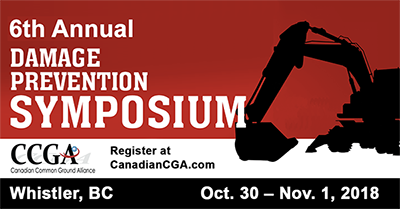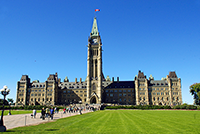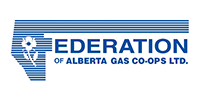Join us in Whistler, BC for the 2018 CCGA Damage Prevention Symposium and become part of Canada’s unified voice on damage prevention! Every year, the CCGA Symposium brings together members from organizations and associations across Canada who share the responsibility for preventing damage to underground infrastructure and for improving safety for our workers and the public.
The Damage Prevention Symposium is an excellent opportunity to network with your peers and other industries, and learn about the latest developments, technologies and trends for damage prevention in Canada.
|
Joignez-vous à nous à Whistler, en Colombie-Britannique, pour le Symposium sur la prévention des dommages de le CCGA de 2018 et faites partie de la voix collective en matière de prévention des dommages au Canada! Chaque année, le symposium de le CCGA réunit des membres au sein d'associations et d'organismes canadiens qui ont un partage des responsabilités pour trouver des solutions en termes de sécurité publique et de prévention des dommages.
Le Symposium sur la prévention des dommages est l’occasion idéale de faire du réseautage avec vos pairs et d'autres industries et de vous renseigner sur les derniers développements, technologiques et tendances en matière de prévention des dommages au Canada.
|
Source: IT WORLD CANADA
Public Safety Canada will help create “a community of critical infrastructure cyber security experts” as part of its ongoing effort to improve the protection and resilience of the country’s vital sectors, including the financial, telecommunications and energy industries.
Source: CTV
An online map laying out billions in infrastructure spending approved by the federal Liberals has yet to provide the full scope of funding towards new and upgraded bridges, roads and transit systems.
Source: The Globe and Mail
Citizens mostly do a good job of recognizing the hollowness of political stock phrases. Yet there is one bit of campaign rhetoric that still leaves many nodding their heads sagely, if not reaching for the Kleenex: the ubiquitous “infrastructure investment.”
Welcome to the first issue of 'Know What's Below,' the CCGA's monthly newsletter!
I'm excited that we are kicking off our own nation-wide newsletter. It’s a fantastic opportunity for all of us across Canada to share information: updates from each province, regional issues we encounter and the latest developments in damage prevention.
|
Voici le tout premier numéro du bulletin mensuel Know What’s Below du CCGA !
Je suis ravi que nous lancions notre propre bulletin national. C'est une occasion fantastique de partager de l'information entre nous, peu importe l’endroit au Canada, que ce soit des mises à jour de chaque province, des problèmes régionaux que nous rencontrons ou des derniers développements en matière de prévention des dommages.
|
The Government of Canada and the Canadian Common Ground Alliance (CCGA) are developing a new pilot project aimed at preventing damage to underground infrastructure.
The pilot project is a collaboration between Public Services and Procurement Canada (PSPC) and the CCGA to coordinate notification processes before an excavation occurs on federal lands, as well as raise awareness for the protection of underground infrastructure across Canada.
|
Le gouvernement du Canada et le Canadian Common Ground Alliance (CCGA) développent actuellement un nouveau projet pilote ayant pour but de prévenir les dommages aux infrastructures souterraines.
Ce projet pilote, une collaboration entre Services publics et Approvisionnement Canada (SPAC) et le CCGA, vise à coordonner les processus de notification précédant l’exécution d’une excavation sur des terres fédérales ainsi qu’à sensibiliser le public à la protection des infrastructures souterraines au Canada.
|
Each province in Canada has slight variations on how locates for buried utilities are requested to a One-Call centre, and each One-Call centre’s business rules vary, even when using the same software. However, in Western Canada, that will soon change.
|
Partout au Canada, chaque centre d’appel unique présente ses propres particularités tant dans la façon dont une demande de localisation est réalisée que dans leurs règles d’affaires, et ce, même s’ils utilisent le même logiciel.
Tout cela changera bientôt dans l’Ouest canadien.
|
The law in Ontario, which stipulates the obligation to get information on what is below before excavating, has been in effect since 2012. South of the border, this obligation exists in every state. On Parliament Hill, Bill S-229 passed the Senate in May 2017. Where does the Quebec government stand on legislation while it’s gaining ground elsewhere in the country?
|
L’obligation de s’informer de ce qui se cache sous le sol avant de creuser, c’est la loi en Ontario depuis 2012. Chez nos voisins du sud, c’est également obligatoire dans tous les états. Et du côté d’Ottawa, l’important projet de loi S-229 a déjà passé l’étape de l’adoption au Sénat en mai 2017. Où en est le Québec dans cette voie législative qui gagne du terrain partout au pays ?
|
2018 saw a variety of events occur across the province in April and early May. Flag raisings and proclamations occurred at City of Sudbury, City of Oshawa, Town of Collingwood, City of Barrie with MP Nutall, the Mayor of Milton at Landscape Ontario, City of St. Catherines, St. Clair Township as well as two regions, the Region of Niagara and Region of Northumberland.
En 2018, divers événements se sont produits dans la province en avril et au début de mai. Des levées de drapeau et des proclamations ont eu lieu à Sudbury, à Oshawa, à Collingwood, à Barrie avec le député Nutall, à Landscape Ontario avec le maire de Milton, à St. Catherines, dans le canton de St. Clair, et dans deux régions: la région de Niagara et la région de Northumberland.
This newsletter is sponsored by:
Ce bulletin est sponsorisé par:
|
|












